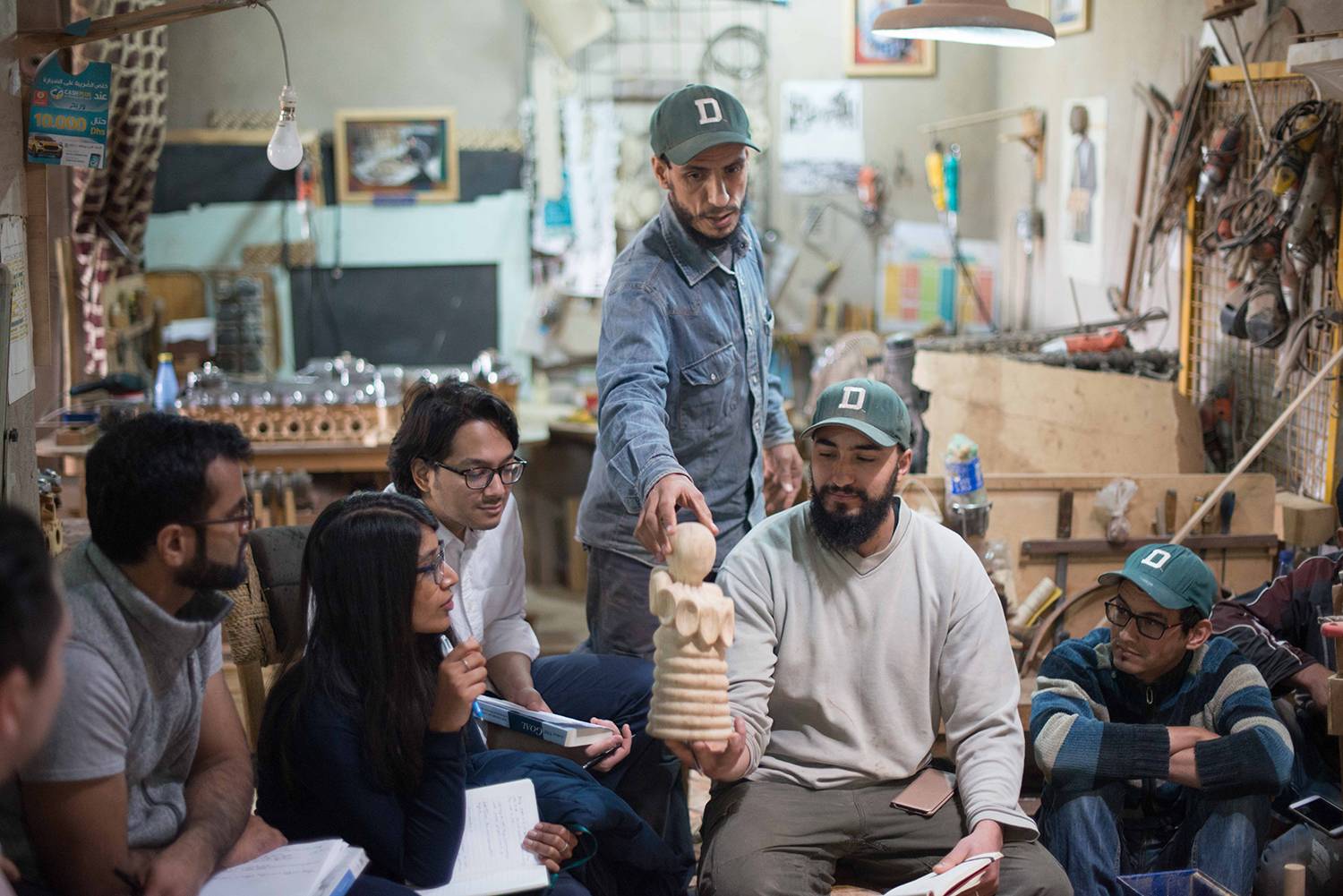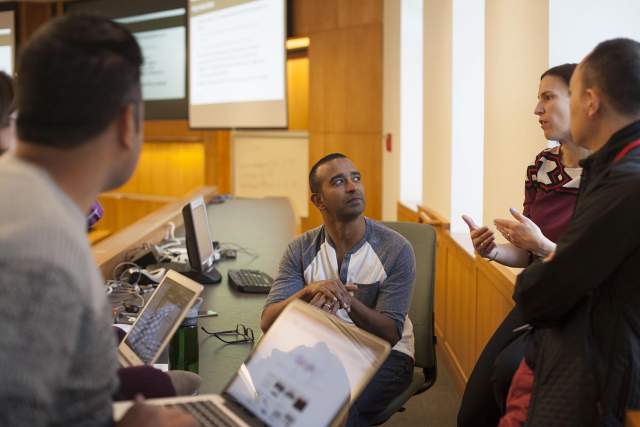Tuck First-Year Students Begin 10-Week Real World Project Course
Tuck’s signature First-Year Project is underway.

In March, a team of Tuck students ventured to Morocco for a global First-Year Project.
Tuck first-year students returned to campus from spring break recently and began an exciting phase of their MBA experience: First-Year Projects.
Fifty-nine teams composed of 292 students are working for companies such as the PF Flyers, Orvis, and the Himalayan Cataract Project, applying their classroom learning to complex business challenges.
The FYPs began with the annual kickoff event on March 26, where teams learned how to scope their project and then met with their client on campus or via video conferencing. In the afternoon, teams met with their faculty advisors, who ensure that each team works on key project management skills such as defining the key question, developing an issue tree, and story boarding. The event concluded with a social gathering where teams, advisors, and clients mingled and discussed the work ahead.
These projects are a major focus for first-year students for the next eight weeks. In Stage 1, teams meet with clients to refine the project scope and conduct in-depth research. In the second stage, teams analyze their research and develop hypotheses for how to best solve the client’s problem or take advantage of an opportunity. During the third stage, teams finalize their recommendations, and plan their final presentation to the client. In the tenth week, students deliver their presentations and transfer the project tools and deliverables. All told, each team will put in roughly 500 hours of work on their project.
While most FYPs are with well-established corporations and non-profit organizations, the course also allows students to use the time to develop their own entrepreneurial venture. Ten such “eFYPs” are taking place this year. In past years, students have pursued interests in real estate, sustainable business, and health care, just to name a few. In any case, FYPs draw heavily on first-year courses such as Marketing, Managerial Economics, Strategy, Management Communication, and Decision Science.
“The FYP presents students an unparalleled opportunity—within the context of an academic class—to customize the course to achieve personal and professional goals,” says Becky Rice, director of the FYP course. “Global or local, startup or Fortune 500, all sectors and business disciplines—the opportunities are boundless for students who embrace the course, and work with me to make it happen.”

